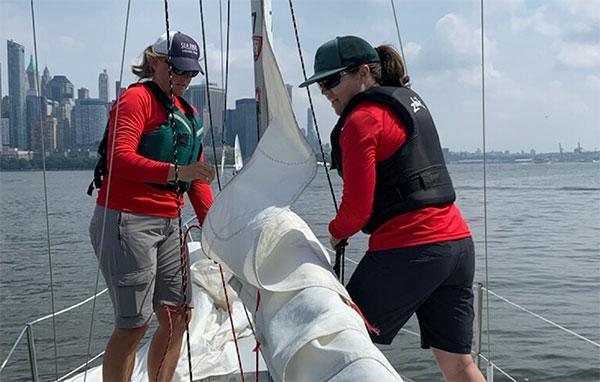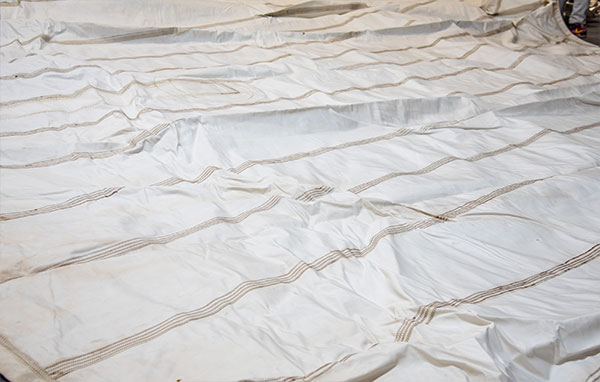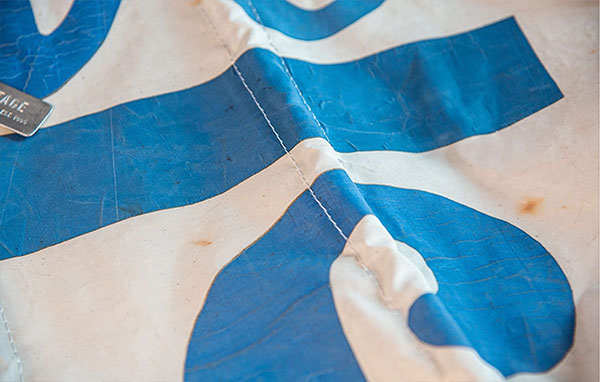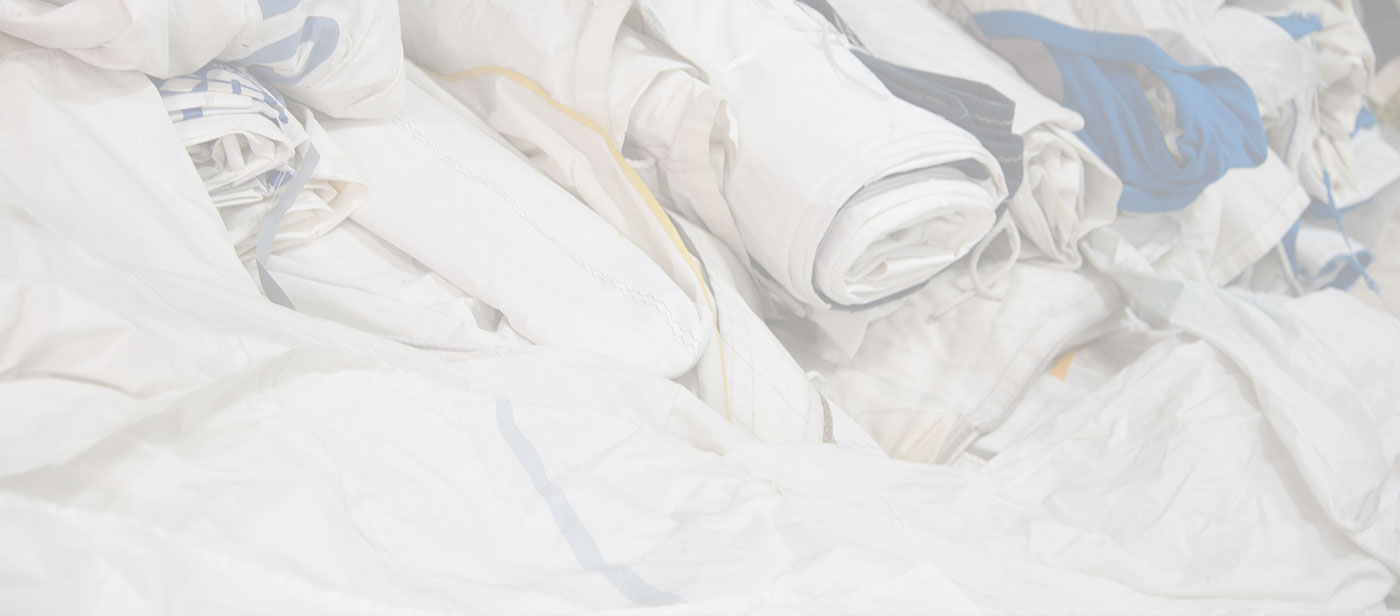
MATERIAL DESIGNED
FOR DAYS ON THE WATER
- Our Mission
- Why Recycled Sail?
- How We Define Sustainable
- How We Make A Sea Bag
A sail's useful life is only just the beginning...
...when its time on the water ends. Wind, sun, and salt infuse sails with character, enhancing their uniqueness as a material for totes and bags.

When does a sail lose its seaworthiness?
Several factors can affect how quickly a sail loses its effectiveness. Sun, salt, and constant wind will eventually stretch and deteriorate sail cloth. Savvy sailors will often patch their sails or have them refurbished at a sail loft, but eventually all sails need to be retired. However, even when a sail loses its seaworthiness, its useful life is far from over.

Durable, lightweight, easily cleaned material
Sail cloth is designed for performance, and those same qualities lend it perfectly to being transformed into durable and lightweight bags. Recycled sail cloth totes will last for decades and keep sails out of landfills.

Character marks make our bags all one-of-a-kind
Besides the qualities that are true of all sail cloth, there are factors that make each sail, and each bag unique. Every sail has had a lifetime on the water to earn signs of hard sailing like patches and rust spots, which we capture and elevate in each Sea Bag we hand-make. We also cut and stitch our bags to include original grommets, telltales, and sail hardware, making each bag truly one-of-a-kind.

Every bag has the spirit of days on the water
Many of our designs include nautical symbols and sea life because the time each sail spends on the water is what makes a Sea Bag one-of-a-kind. Sun, salt and days of hard sailing make each sail unique and impart character marks that tell a story. When you hold a Sea Bag for the first time, original stitching and wear on the sail cloth combine with quality construction to impart the heritage of maritime tradition.

We save 8,000-10,000 sails
from landfills every year.
